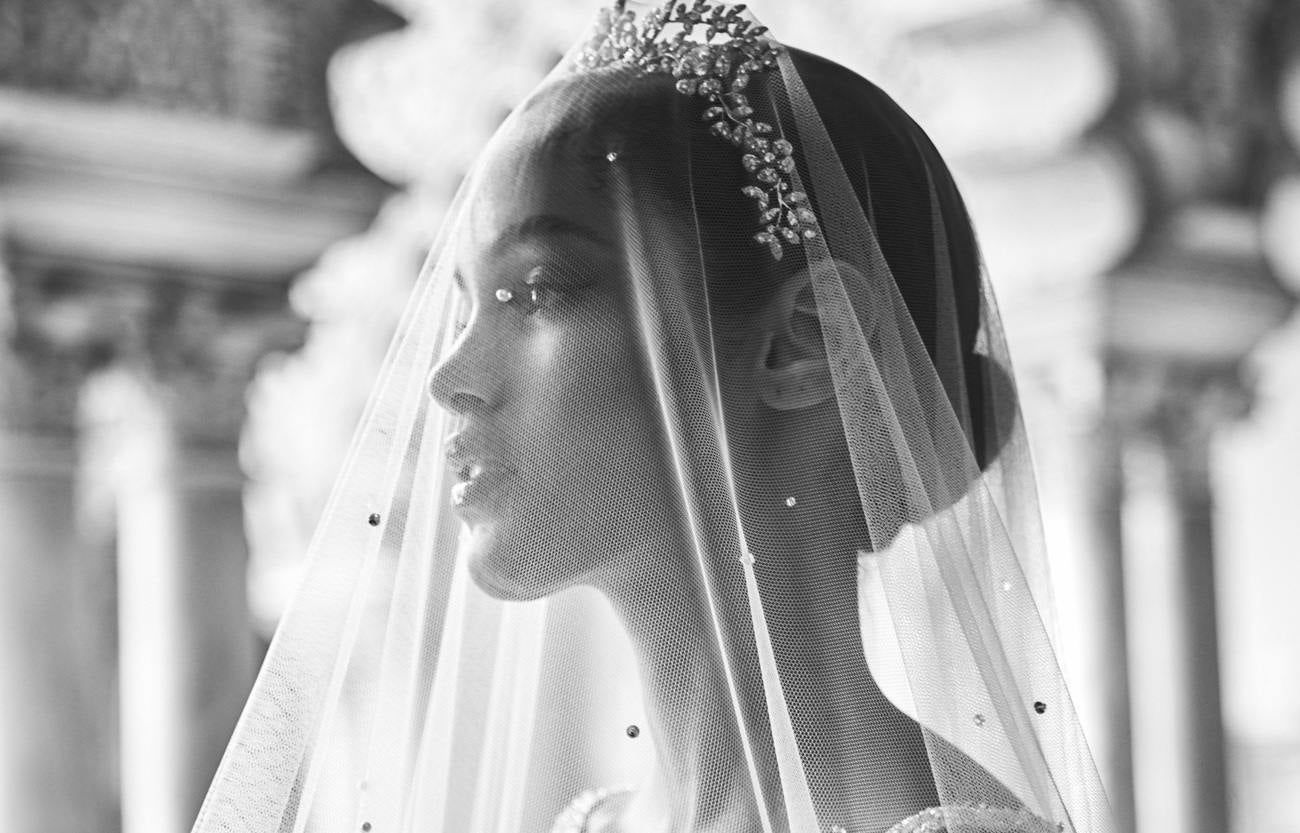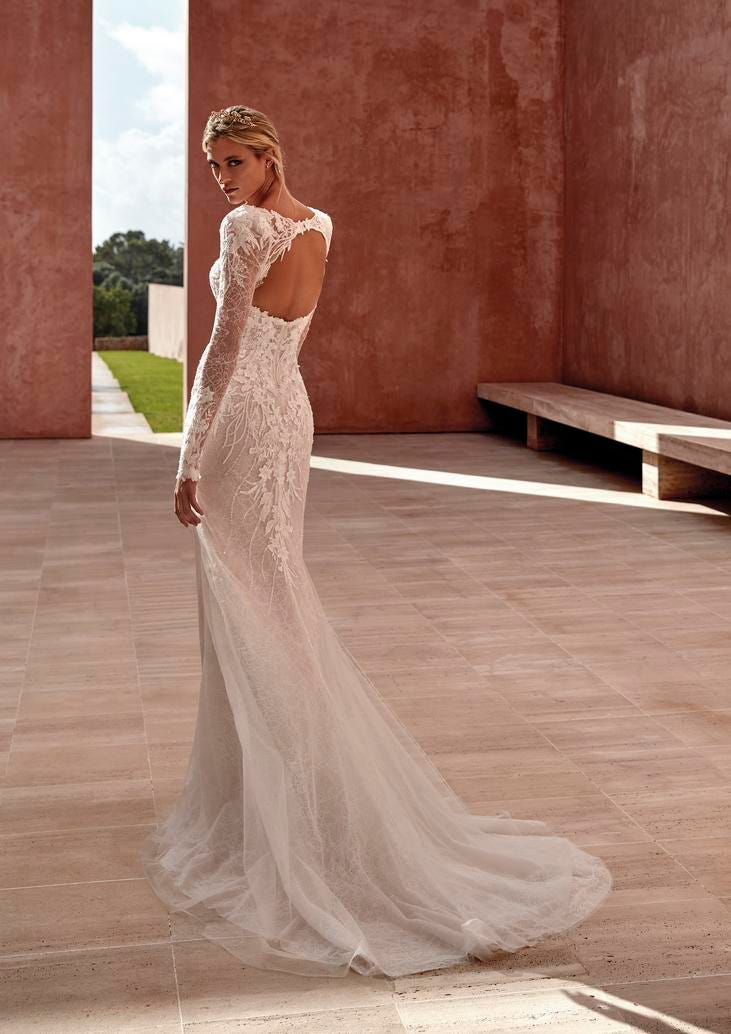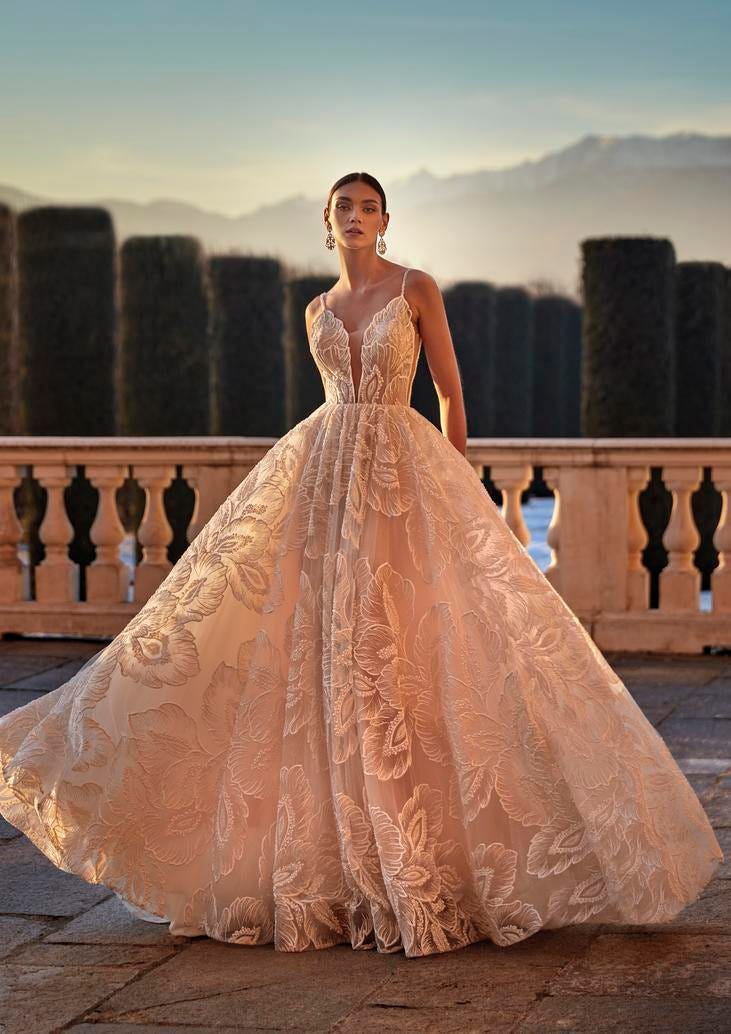
Hispanic wedding traditions can vary greatly from North American ceremonies, and each country has its own distinctive twist. Whether you’re attending as a guest or searching to incorporate your or your fiancé’s culture into your celebrations, read on to explore some unique aspects of Hispanic weddings and begin preparing for a beautiful ceremony.
Hispanic wedding ceremonies
Celebrations can vary depending on what traditions the couple wishes to incorporate. Some couples may choose to host a small civil ceremony before their wedding day. A close circle of friends and family typically attends, and the event is followed by a small reception. Alternatively, the civil ceremony can take place on the same day, just before the wedding.
Once the civil ceremony takes place, the grand wedding celebrations ensue, and below are a few fun traditions to look forward to.

La serenata
One Mexican wedding tradition is la serenata. La serenata is a musical serenade the groom performs to his bride-to-be the night before the celebrations. Accompanied by a group of musicians, the custom adds an element of romance to the celebrations and is a way for the groom to express his love to the bride before the big day in a more intimate setting.
Wedding party
Hispanic wedding parties traditionally consist of godparents that provide guidance to the new couple before, during, and after the celebrations. Though bridal and groom parties are becoming more popular, some couples may decide to keep their godparents as well, assigning them different roles from the wedding party so everyone has a special place in their ceremony.
Arras wedding coins
The arras coins tradition is performed during the ceremony itself. Common at Catholic weddings, the groom presents the bride with 13 coins made of silver or gold. The coins are blessed by a priest and represent Jesus and the apostilles. The groom handing the coins to the bride symbolizes his commitment to providing her with what she may need during their marriage, as well as showing their dedication to their relationship with God.
The wedding lasso ceremony
The lasso ceremony is typical of many Latin American celebrations, especially within Mexican wedding traditions. After the exchange of vows and rings, a lasso is intertwined around the couple in a figure-8 shape, symbolizing infinity. It can be made of flowers, crystals, or beads, depending on the couple’s preferences.
Hispanic wedding reception traditions
After the ceremony comes a long night of celebrating the newlyweds. Some receptions go so long that some guests go from dancing right to La Tornaboda, or breakfast at the bride’s or groom’s house. With hours of celebration, many weddings can include some or all of the following reception traditions:
Money Dance
One fun aspect of a Hispanic wedding reception is the money dance. Guests can pin money on the bride or groom for a chance to dance with them. How much money is pinned on the newlyweds can determine how many songs the guests get to dance to with the couple.
Bachelor shoes
Instead of a wedding garter tradition, some receptions have an alternative custom. A Columbian wedding tradition involves bachelors placing their shoes underneath the bride’s dress. The groom then picks one, and it is believed that whoever the shoe belongs to will be the next one to be married.
Disappearing Act
Another fun Hispanic wedding tradition that both the bride and the groom participate in is the disappearing act. The couple tries to leave the celebrations without getting caught. If they successfully escape, they’re meant to have good luck. However, whoever manages to find the couple first will also receive good luck. It’s a unique custom that involves every guest!
Traditional wedding cakes
The bride and groom can choose whether to incorporate a traditional cake or decide on one that best suits their taste. Most common at Mexican receptions, the Tres Leche wedding cake (three milk cake) consists of soaking the sponge in three different types of milk: condensed milk, evaporated milk, and heavy cream.
The cake is sometimes served with coffee at the end of the night, or it can be used as a way to break up the dancing. Once the guests finish their slice, they can continue celebrating with even more energy.

Hispanic wedding dresses
The bride’s wedding dress style can vary depending on her personal preferences as well as her culture. For brides searching to incorporate both in their wedding look, consider the list below for some details to search for as you begin looking for your perfect gown.
Colorful variations
Deviating from the traditional white wedding dress to add a different hue elevates your bridal look and is common in some cultures. Colorful wedding dresses are traditional in Peru and can range from vibrant detailing at the bottom of the skirt to breathtaking gowns in a different hue altogether.
Ethereal lace details
Enhance the romance of your special day by adhering to a bridal trend common to Hispanic ceremonies. Spanish wedding dresses are known for intricate lace details and stunning designs for a breathtaking look.
Voluminous skirts
Traditional Cuban and Mexican wedding dresses can be in a similar form of a quinceañera gown. With a fitted bodice and voluminous skirt, consider incorporating the dramatic silhouette of a princess wedding dress for an unforgettable bridal gown.
Simple elegance
Alternatively, for brides with minimalist taste, slip on a simple wedding dress in an elegant A-line silhouette. Also common to Argentinian and Chilean weddings, the relaxed shape of the gown complements your figure while creating an effortlessly chic look suited to your ceremony.

What to wear to a Hispanic wedding as a guest?
Attending a traditional ceremony can be exciting, for the event may be the first Hispanic wedding some invitees have ever attended. The dress code may vary depending on the couple’s preferences.
Avoid coordinating with the bridal party
In general, it is best to stay away from white as you would with any other ceremony to not clash with the bride’s dress. Checking the wedding party colors is also a good idea if it is not specified on the invitation as to not match with the bridesmaids.
Stick to the dress code
For semiformal attire, consider selecting a knee-length dress for women, while men can wear a classic suit with a fun-colored button-down. Alternatively, for black-tie weddings, men should opt for a dark navy or black suit, while women can decide on a floor-length gown in a style that best complements their figure.
Consider cultural expectations
Adhering to cultural sensitivities is also wise, so refraining from too-revealing dresses is the safest option. For more religious ceremonies, keep in mind the rules of the venue and adjust your attire accordingly to show your respect.
Hispanic weddings are filled with various traditions, starting from weeks before the big day. From the civil ceremony to La Tornaboda (the day after the reception), guests have many opportunities to partake in treasured traditions to celebrate the happy couple. Whether you’re preparing as a guest or hoping to incorporate some customs into your wedding, you’ll find these cherished ceremonies are memorable moments to mark the special day.





